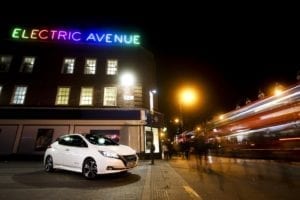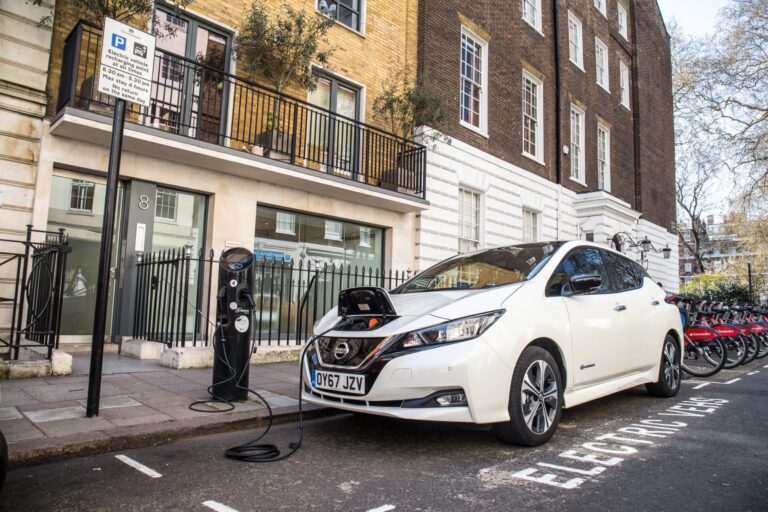There are now almost 1,000 more public places to charge electric cars than there are forecourts to pump petrol in the UK, claims Nissan, with 9,300 EV charging locations compared to 8,400 fuel stations.
According to the Japanese OEM, in less than a century since Britain’s first fuel station opened – November 1919 at Aldermaston in Berkshire – the number of forecourts has peaked, declined and been overtaken by charging stations designed for battery-powered cars.
It reports that “almost 80% of UK petrol stations have closed since 1970, while the number of electric vehicle charging locations has increased from a few hundred in 2011 to more than 9,000 in August 2019”.
Of these locations, more than 1,600 provide rapid charging, and can recharge a typical EV battery to around 80% in under an hour. According to Zap-Map, a UK-wide map of charging points that aims to help EV drivers locate available charge points, two new rapid charge devices came online every day in the last month.
 Transport for London has installed more than 1,000 EV charge points in the last year alone, says Nissan, adding that Central London has nearly half as many petrol stations per car as the Scottish Highlands. Reportedly, only four petrol stations remain within the congestion-charge zone.
Transport for London has installed more than 1,000 EV charge points in the last year alone, says Nissan, adding that Central London has nearly half as many petrol stations per car as the Scottish Highlands. Reportedly, only four petrol stations remain within the congestion-charge zone.
Nissan goes on to claim that “the introduction of the new Ultra-Low Emission Zone (ULEZ) in April 2019, has led to increasing numbers of London drivers looking to zero-emission solutions for their commuter or commercial transport needs”.
Kalyana Sivagnanam, managing director, Nissan Motor GB, said; “Many consumers are saying their next car will be electric. That means the industry needs to ensure their desires are met with both the car – how far it can go, what technologies it has – and how it interacts with the world around it – where they can charge and how convenient that is for them.
“We’ve moved beyond the early concerns of range anxiety with EVs now exceeding the vast majority of customer’s daily driving needs. The next challenge is for charging infrastructure to keep pace with the number of EVs on the road, and that the experience of recharging is as enjoyable and effortless as that of all-electric driving.”
Claims Nissan, in August 2019, compared to the previous year, demand for battery-electric vehicles increased 158.1%, resulting in a 1.4% market share, the highest monthly market share on record.





